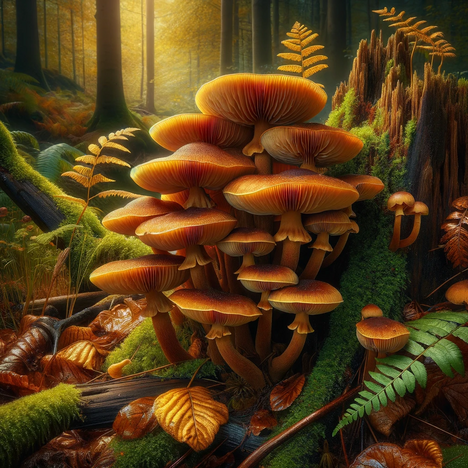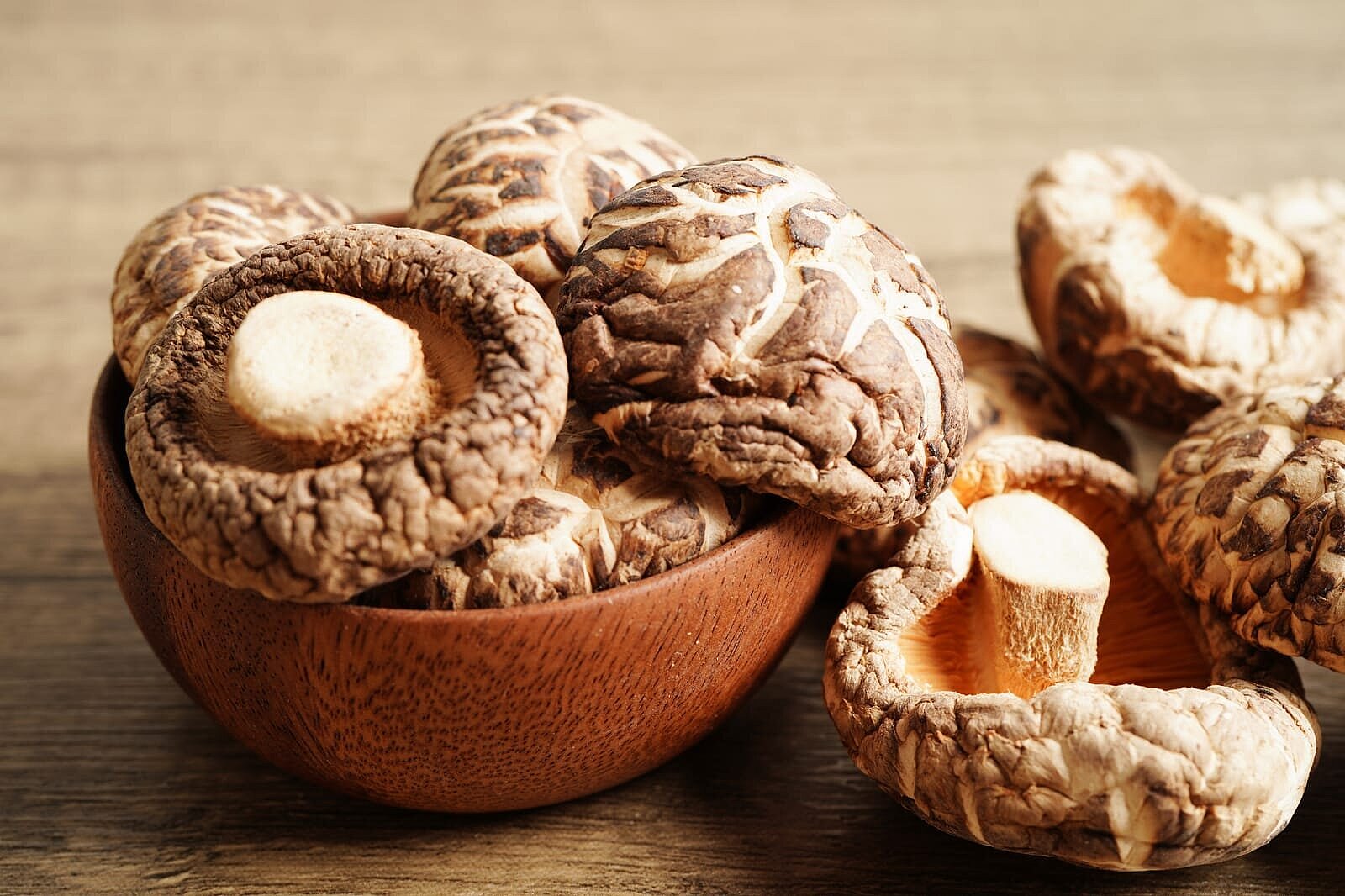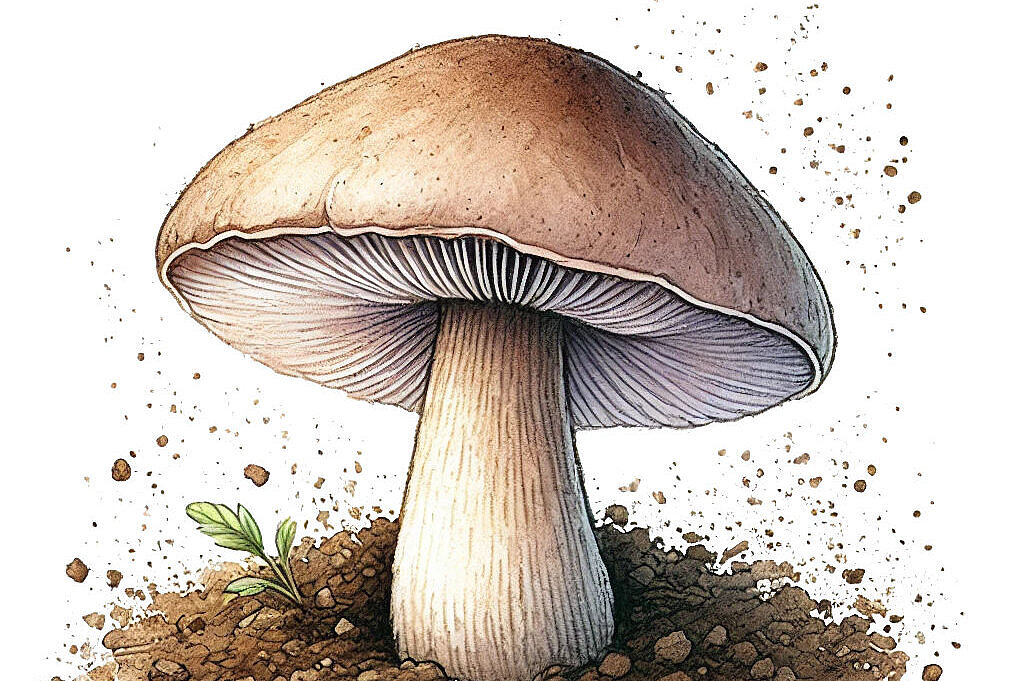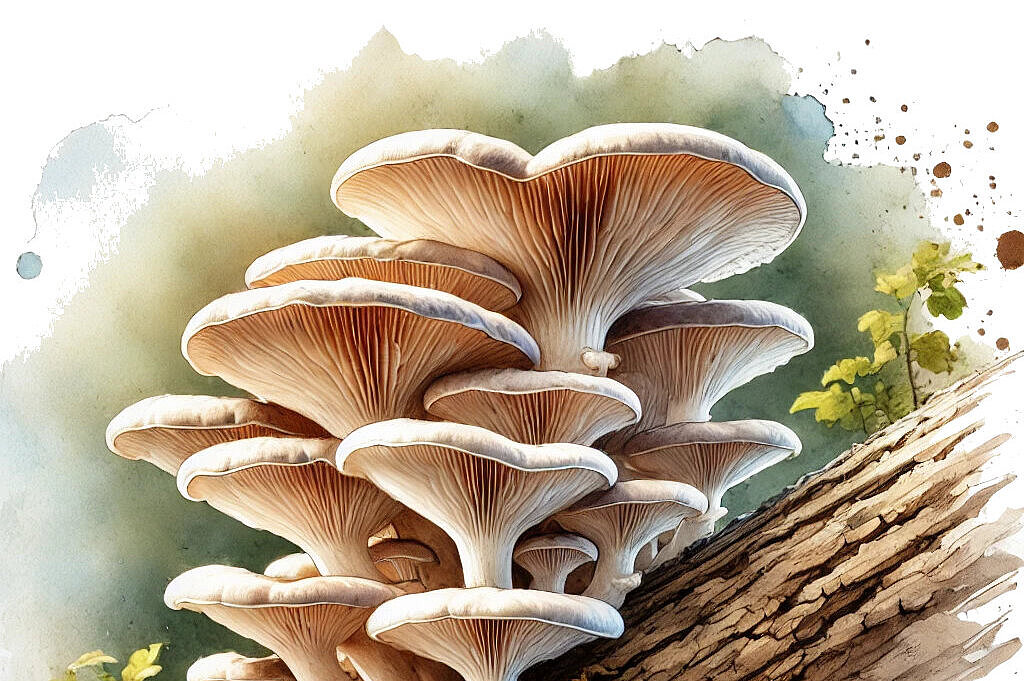Hallimasche

Fungi fascinate with their diversity and mysterious growth in nature. One of these mushrooms, the honey fungus, is often found in forests and is known for its impressive network and ability to colonize trees. While some types of mushrooms are prized in the human diet, the question arises as to the tolerance and benefits of honey mushrooms for our dogs. In this article, we look at the properties of the honey fungus and discuss the potential benefits and drawbacks of its use in dog nutrition.
What is hallimash?
The Hallimasch (Armillaria) is a genus of fungi known for their parasitic behavior. They mainly infect trees and wood, forming an extensive mycelium that spreads under the bark and in the soil. Hallimash can cover entire forests and are recognizable by their characteristic fruiting bodies, which grow in clusters and have a honey-colored cap. Although some species of honey fungus are used in human cuisine, caution is advised as not all species are edible and some may even contain poisonous substances.
Honey fungus in dog nutrition
Potential benefits
Nutrient content
Edible species of honey fungus can be a source of vitamins and minerals. Mushrooms contain B vitamins, antioxidants and minerals such as selenium, which can contribute to overall health. Theoretically, these nutrients could also be beneficial for dogs if the mushroom is given in controlled, small amounts.
Digestive aid
Mushrooms contain fiber, which can support healthy digestion. They promote a healthy gut microbiome and can help regulate bowel function.
Risks and disadvantages
Toxicity
The biggest risk of feeding hallimash to dogs is the potential toxicity. Some species of hallimash contain toxic substances that can lead to symptoms of poisoning in dogs, including vomiting, diarrhea, lethargy and, in severe cases, even neurological symptoms or death.
Allergic reactions
As with any new food, there is a risk of allergic reactions to mushrooms. Symptoms can range from mild skin irritation to severe digestive upset.
Risk of identification
Correct identification of mushrooms is a challenge and even experienced mushroom pickers can make mistakes. The risk of picking a poisonous mushroom that looks similar to the honey fungus is high and can have serious consequences.
A risk that must be avoided
Although mushrooms like the honey fungus are fascinating organisms and have a place in the human diet, there are significant risks associated with their use in dog food. The potential toxicity and difficulty in distinguishing edible from poisonous mushrooms make honey mushrooms an ingredient whose risks far outweigh the potential benefits. For dog owners who want to enrich their four-legged friend's diet with mushrooms, it is advisable to limit themselves to known safe, non-toxic species and, if in doubt, to avoid them altogether. A dog's health and well-being should always come first, and there are plenty of other safe and nutritious foods that can contribute to a dog's diet without taking unnecessary risks.
If you notice any signs of hypersensitivity or poisoning in your dog, you should see your vet immediately. We are not a substitute for a vet, but we try to be as accurate as possible. Every dog reacts differently and we recommend you get a second opinion or consult your vet if in doubt.
Stay healthy and take good care of your four-legged friend!😊
Similar to Hallimasche
Shiitake mushrooms are edible mushrooms that originally come from Asia. They grow on logs or slices of wood and have a brown cap with white lamellae. Their name translates as "mushroom of the...
Champignons are also known as Egerlinge or Angerlinge and are one of the most cultivated mushrooms in the world. They are descended from the meadow mushrooms that grow in the wild. Mushrooms have a...
Oyster mushrooms (Pleurotus ostreatus) are edible and medicinal mushrooms that are also known as oyster mushrooms, veal mushrooms or winter mushrooms. They grow in clusters on deciduous or...
The king oyster mushroom (Pleurotus eryngii) is an edible mushroom that is also known as the king oyster mushroom. It has a light brown cap and a thick, white stalk. Its flesh is firm and firm to...



